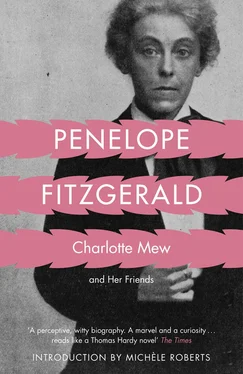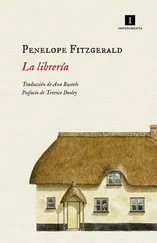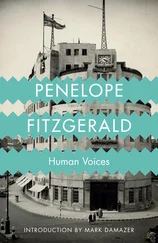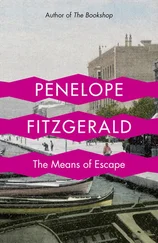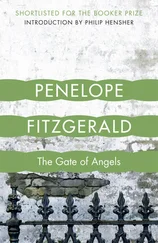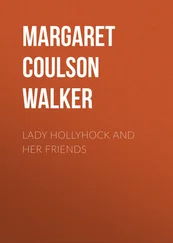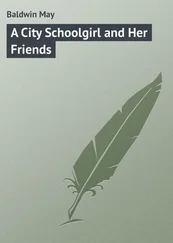Growing up in the aspirant London middle class, child of a struggling-architect father and snobbish mother, Charlotte was required to appear ladylike, decorative and genteel. However, her family’s financial misfortunes after her father’s death meant that she also needed to make a living. Like many another ambitious young woman before and after her, she decided to earn money by writing. She had an ailing mother to look after, housework to do, lodgers to tend, but she carved out a space in which to create short stories and poems. She travelled, too, in northern France, and explored new freedoms abroad, including trying out dancing the can-can, and hanging out with the sailors loafing along the quays. She fell passionately in love more than once, and endured the bitterness of sexual rejection. She made few but close friendships, with people who respected her shyness and contradictoriness.
These friends gave her the encouragement every writer needs to go on writing. The ruthless drive to create may be experienced as an internally produced one, but needs external validation too. This is probably even more true if you are breaking moulds, as Mew did. Coming after the Victorians and before the modernists, she invented a new music in poetry, a new kind of line, irregular and urgent, employing monologue forms, voices (often male) whose utterances seem to echo free-association, irregular rhythms that thump like the blood of a disturbed heart. The poems dramatise and rehearse themes of sexual longing and frustration, family crises, madness, creativity, childhood, cruelty. They are powerful, upsetting, whimsical, amoral.
A poet may become famous in his or her own day, then fade from sight when fame’s light swivels elsewhere. Time is conventionally supposed to tell whether someone’s work will last, to be admired afresh by future generations. In this view, history acts as a sort of sieve, reliably separating the wheat from the chaff. However, human agency is required alongside. If someone does not keep your name in the papers, your work in print, your books on the educational syllabus and in the literary canon, then your name may be temporarily forgotten, until you are rediscovered. Charlotte Mew, championed by distinguished male editors such as Harold Monro in her lifetime, was ignored by later ones, her poems left out of their anthologies; omissions which had the effect of falsifying and distorting the literary map. Nonetheless, Mew’s work went on being valued by successive waves of readers unafraid of appearing unfashionable. The scholar Val Warner produced a complete edition of her poems and prose in 1981. Then, in 1984, Penelope Fitzgerald published Charlotte Mew and Her Friends , which drew attention all over again to this remarkable writer. This reissue of that fine biography will, I hope, introduce a new generation to the fascinating, strange, vivid world of Mew’s poetic imagination.
Penelope Fitzgerald was writing fiction at the same time as working on her biography of Charlotte Mew, which allowed her to muse about how the two forms differed and overlapped. Her own biographer, Hermione Lee, quotes her joking: ‘On the whole I think biographers are madder than novelists.’ Fitzgerald also wrote: ‘I think you should write biographies of those you admire and respect, and novels about human beings who you think are sadly mistaken.’ She considered that fiction’s advantage over biography was that it could contain dialogue, which of course the writer made up. As a biographer, she was diligent with her research, committed to facts and to truth. As a novelist writing biography, she occasionally allowed herself to speculate in a minor way. For example, speaking of the death in childhood of Charlotte’s younger brother, she says: ‘Charlotte, at seven years old, was certainly brought in, as elder sisters were in the 1870s, to see her little brother “in death”.’ She offers no direct evidence for this, simply invites us to imagine an experience.
When you write fiction, you may try to create the subjective emotional truth of a character, the way she is for herself, thoughts and feelings constantly shifting and changing. You may try to imagine a character’s hidden, secret, inside world, composed of visual images, snatches of music, fragments of overheard talk, bits of memory, currents of physical feeling, all involved in a whirling dance. All this richness, linguistic and non-linguistic, has to be translated into connected words, put into sentences, arranged in narrative order, the timeless moment subdued to the constraints of time. Form and pattern emerge; the novel embodies the process of its making.
As a biographer, you necessarily work more from and on the outside. Fitzgerald respects Mew’s private self, and seems to be protective of it, even as she shows that her subject’s sense of privacy was linked to her sense of what the wider society could and could not tolerate. Mew desired and fell in love with women, but could not discuss her feelings; not even with a close friend such as Alida Monro. Since she was not a feminist, not even a suffragist, she was cut off from the friendship of the lesbian women who found each other through those political movements. On her trips to Paris she had no access to the lesbian coteries and salons that flourished there. Sooner or later she had to return to a world of constraints; and to sexual loneliness.
Some writers keep their patterns of disorder-into-order firmly inside themselves, firmly inside their rough drafts. Others need to live them out, to break away from limiting codes of conduct, take risks and make experiments. Outsiders, critics, looking at a writer’s apparently messy life and relationships, messy writing-room, may express uncomprehending disdain. But the writer, the poet, whether she prefers her mess to be metaphorical or literal, or a mixture of the two, needs to embrace her chaos. She needs to take inherited structures of grammar, inherited lexicons, break them up, see what she can make with them. She needs to play, both ferociously and tenderly; eagerly to destroy, patiently to rebuild. She may need to destroy, play with and reinvent inherited rules of relationship. On her own serious terms.
At considerable cost to herself, Charlotte Mew triumphed. She achieved the writing of poetry of beauty, originality and intensity. In a culture that regarded poetry as a supremely male vocation (niches were granted to poetesses writing ladylike verses) she made her voice heard.
How did she do it? Penelope Fitzgerald’s answer is that she divided herself in two. She maintained an outer, decorous, feminine persona, which Fitzgerald names Miss Lotti, the nice girl, passive and chaste, a disguise which hid the passionate, wilder persona, the artist, Charlotte, the ‘savage who threatened her from within’. As a survival technique, this proved exhausting: the divided self enacted a perpetual struggle, the ‘good’ self savagely fighting and punishing the ‘bad’ one. Perhaps this was an internalised version of battles begun in childhood. As a small girl, Charlotte Mew was taught gloomy Nonconformist piety by her nurse, for whom the human condition meant sin, judgement, rejection and guilt. Apparently she both loved and feared this nurse. How could she have escaped being damaged by her bleak, punitive, hell-threatening religion? Fitzgerald (herself a compassionate Anglican) does not explicitly suggest that Charlotte Mew’s inner struggle, one part of herself waging war on the other, may have acted out a version of the small girl’s drama with her nurse, but I let myself speculate that that is possible. In her later life Charlotte was described by one of her women friends and patrons as ‘a pervert’. What was perverse was the power relationship inflicted by the nurse.
Nonetheless, despite these wounds, out of them, Charlotte made unforgettable poems. The same puzzled friend was able to recognise her as a genius.
Читать дальше
